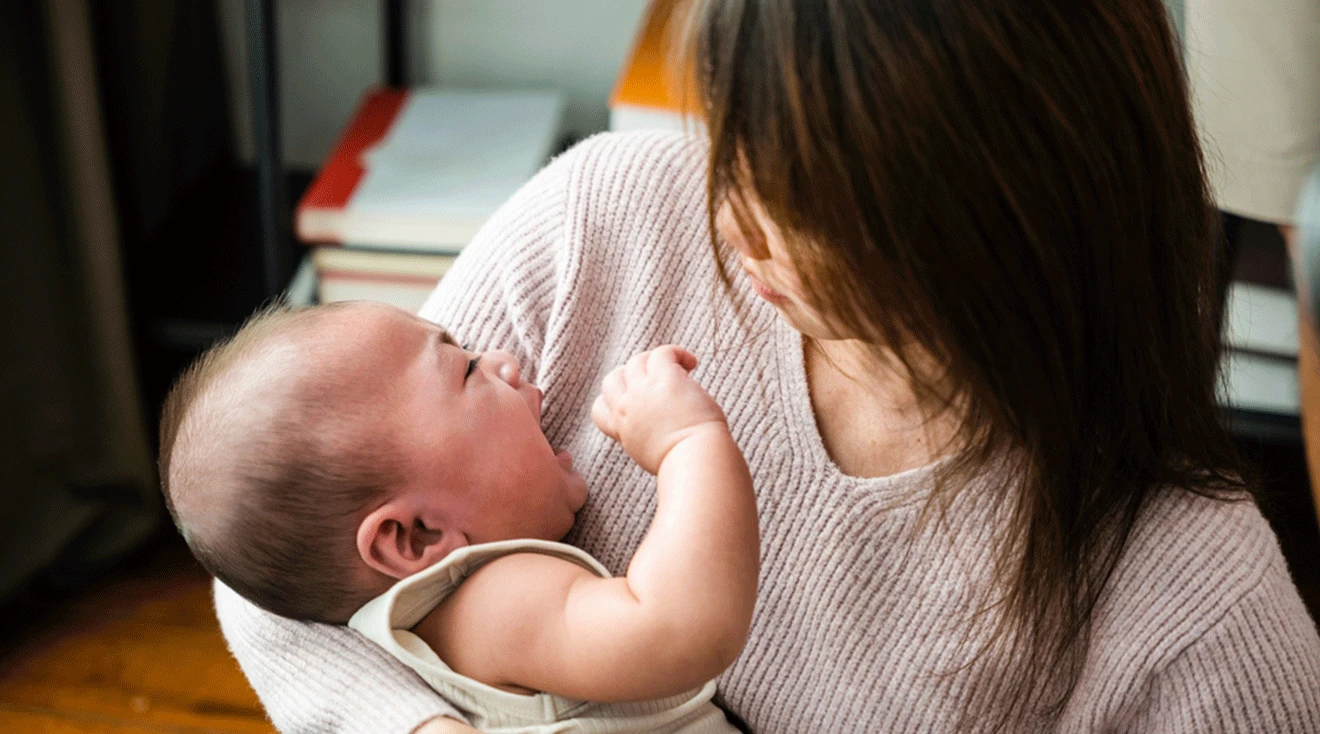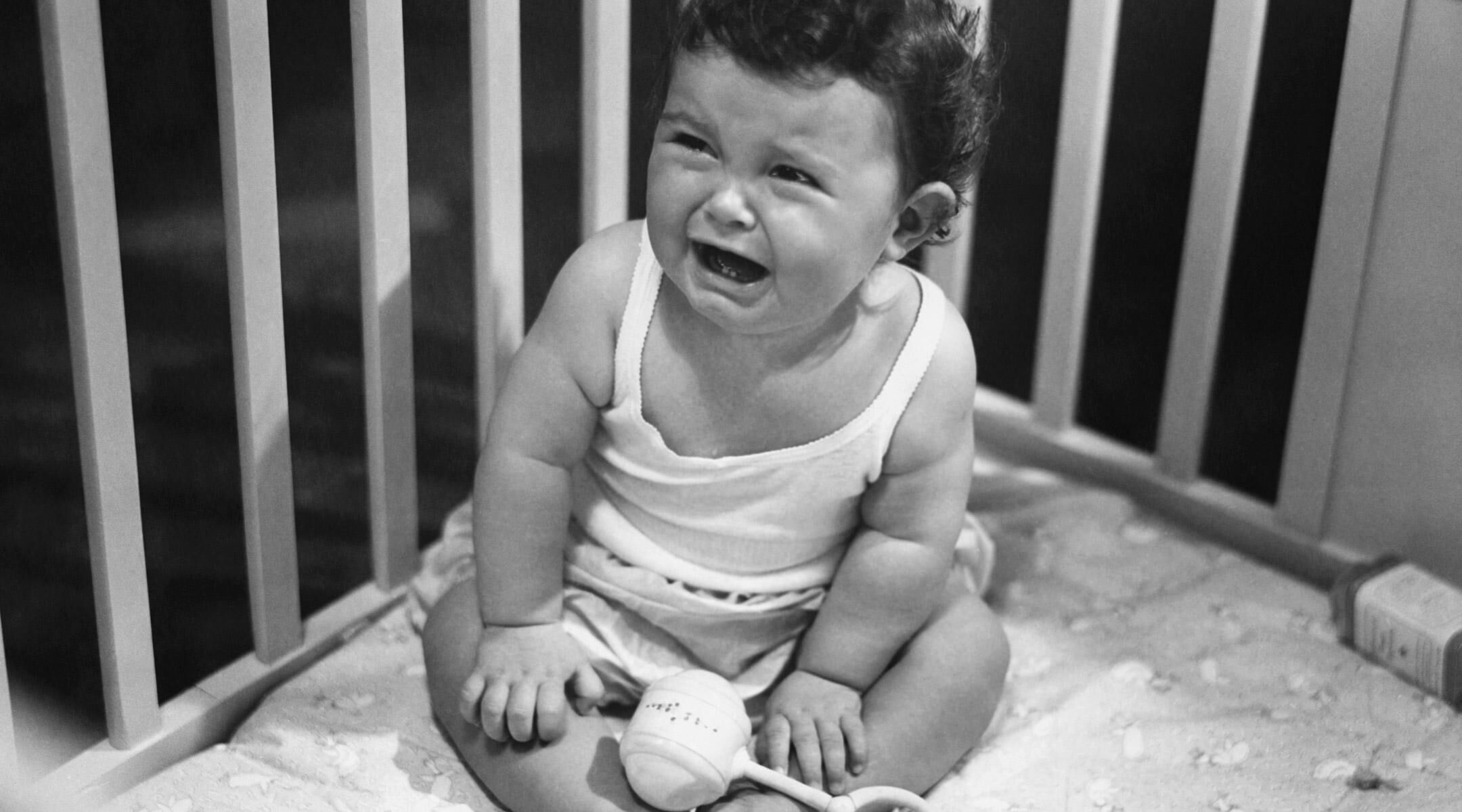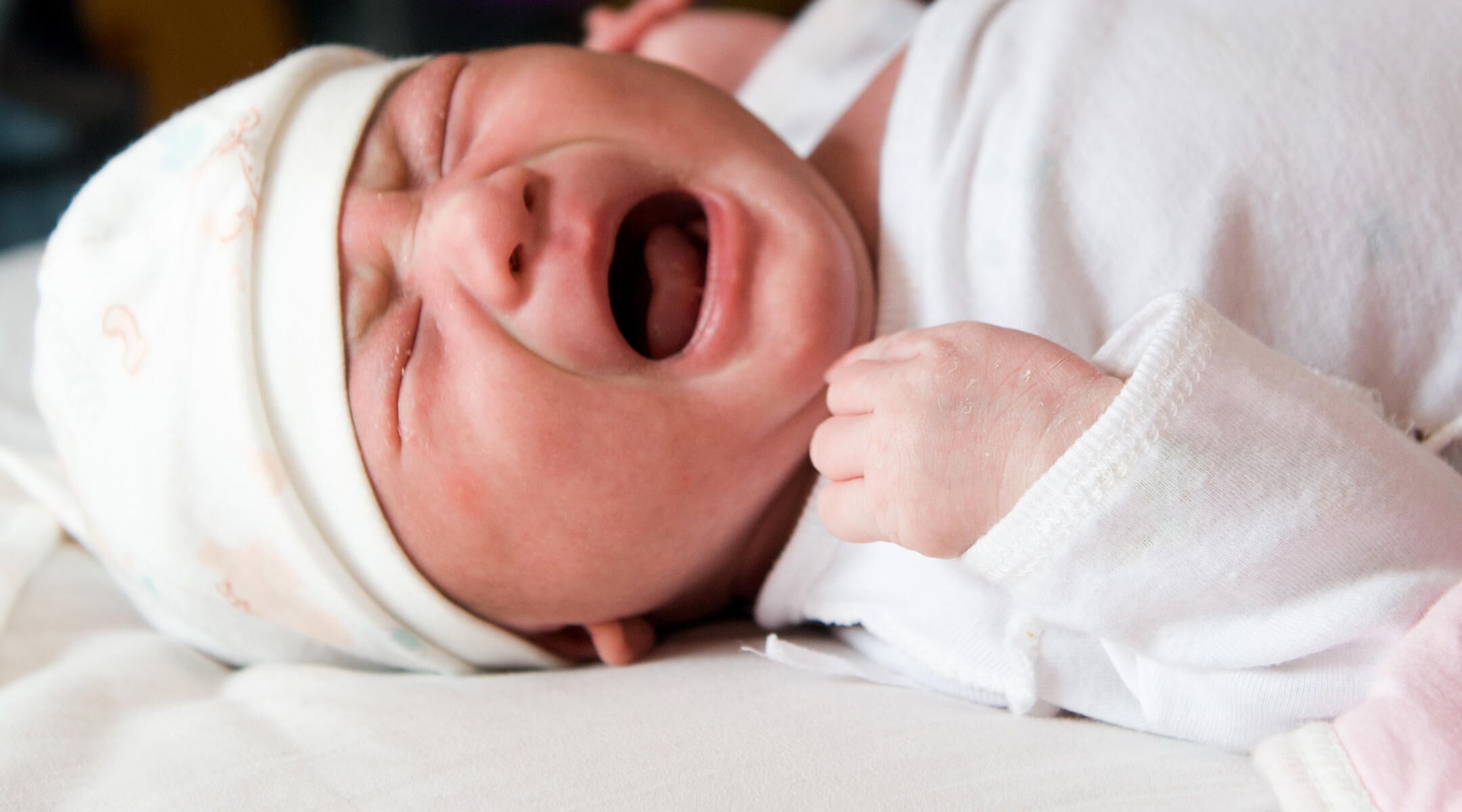What to Do When Baby Won’t Stop Crying
In those bleary-eyed months of early parenthood, it’s common to feel like your newborn won’t stop crying. And it’s not so far off from reality. After all, crying is baby’s primary method of communication for a while. But when do newborns and babies stop crying so much? And, in the meantime, how can you make baby stop crying (and should you)? Moreover, what are some ways to cope when baby won’t stop crying? Here, get the lowdown straight from experts.
Yes, it can feel like newborns won’t stop crying. So why do babies cry so much after birth? Simply put, it’s their way of communicating, explains Tanya Altmann, MD, a pediatrician and founder of Calabasas Pediatrics, as well as spokesperson for the American Academy of Pediatrics (AAP). “Don’t take it personally…babies usually do cry for a reason, and over time you’ll get to know baby’s cries and what they mean.” Until then, some common reasons baby won’t stop crying include:
- They’re cold, wet or uncomfortable in some way (i.e. a dirty diaper or hair tourniquet)
- They’re in pain or feeling sick
- Hunger or gas pains
- They’re tired, overtired or sleepy
- Colic or PURPLE crying (more on these below)
- They want comfort, or to be held
- Overstimulation
“As a parent, sometimes it’s difficult to figure out, but thinking through [some] steps may help,” says Loretta Cody, MD, a board-certified pediatrician based in Connecticut. Ask yourself if baby could be hungry, tired, have a dirty diaper, be sick or be hurt in some way. If you’ve gone through your checklist and still can’t figure out why your baby or newborn won’t stop crying, take a deep breath—they may just be overwhelmed. “Sometimes a parent has gone through the major reasons for crying and think their baby is crying for no reason, but [occasionally] babies have just had a long day and are overstimulated,” Cody adds. In fact, per the AAP, sometimes—like adults—babies cry just as a way to release tension.
Unfortunately, there’s no clear cut answer on how much crying is normal in babies, as this will vary depending on the infant and the cause for these outbursts. Plus, some babies may continue to cry for a couple of hours, even after you’ve ensured all their needs are met, Cody says. According to Mayo Clinic, it’s normal for newborns and babies to cry between one and four hours a day.
Keep in mind, babies suffering from colic may cry for over three hours per day for more than three days a week for longer than three weeks. However, healthy babies may cry for up to five hours each day. These intense periods of increased crying, similar to colic, “usually start at about 2 weeks old and can last until 3 to 4 months old in healthy infants without a medical cause,” Cody explains.
It’s no doubt heartbreaking (and maybe even a little frustrating) listening to baby’s cries, but sometimes when baby’s inconsolable the best thing to do is to check that their needs are met and then just let them cry in a safe space (i.e. their crib or playard). But how long should you let baby cry for? “If baby has been changed, fed and is not sick or hurt, you can let them cry for short periods of time, about 10 to 15 minutes in their crib,” Cody says. According to Mayo Clinic and the AAP, letting your newborn cry for 10 to 15 minutes may even help them fall asleep faster, as it helps them get rid of any extra energy before bed.
Wondering if letting baby cry it out is going to harm them or their development in any way? Cody says no, especially if you’ve already made sure they’re fed, burped, changed and otherwise comfortable.
How long can a baby cry without stopping?
Again, the answer to how long baby can cry without stopping will vary based on the baby and their circumstances. However, if you find baby’s been crying nonstop for two hours, it’s best to check in with your pediatrician, Seattle Children’s Hospital notes.
Babies cry the most during their first three months of life, also known as the newborn period, due to factors such as colic and overall adjustment to the outside world. “As babies get older the crying usually decreases, as they also learn other methods of self soothing and communicating,” Altmann says. However, if baby continues to cry for extended periods of time past the newborn stage, or if you feel like something’s wrong, don’t hesitate to reach out to your pediatrician.
Babies cry at night for several reasons, depending on how old they are, Cody says. Newborns, for example, may get hungry at night and need to be fed. But around 5 months, you’ll be able to drop the middle of the night feeding, and you should see them cry less at night due to hunger.
However, baby may also cry at night due to discomfort, such as from a clothing tag, a trapped hair, the temperature or an illness, such as an ear infection, Altmann adds. If baby’s crying at night and it’s unusual behavior, reach out to your pediatrician.
Is it normal for babies to cry in their sleep?
Both experts say it’s normal for babies to cry in their sleep, due to an unmet need, a sleep cycle in which they’re more awake or simply due to a dream.
You’ve fed baby, burped them, changed them and done a once-over to make sure there’s nothing else that could be bothering them—yet baby’s still crying. In these situations, if you’re wondering how to make baby stop crying and calm them down, there are expert-advised methods you can try.
- Swaddle baby: Swaddling mimics the way baby felt in the womb. It “can help comfort baby, minimize crying and help them sleep longer at night,” Altmann says.
- Offer baby something to suck: Newborns often self-soothe by sucking on something, so offering a bottle, a breast or a pacifier can help baby settle down, notes Altmann.
- Go outside: Getting baby out of their environment and going for a walk outside can help calm them, Cody says. “My boys always liked going outside, no matter what time of day,” Altmann shares.
- Rock or sway baby: Gently rocking or swaying with baby is a great way to help calm them, as it also reminds them of the sensations they felt in the womb, the AAP notes. You may also try gently stroking their head and back; offering a baby massage and softly singing to them.
- Check in on baby’s gut health: “Recent research has shown that unhealthy gut bacteria may also play a role in excessive crying or colic,” Altmann says. Talk to your pediatrician about their thoughts and whether they think a particular infant probiotic may help.
While the above methods can help pacify baby, it’s also hard on you when baby’s inconsolable. Use the following expert tips to keep your sanity in check during those trying times:
Take breaks, rest and sleep as often as you can Find small ways to practice daily self-care as you adjust to life with baby Don’t be afraid to ask for help Control your emotions—per Mayo Clinic, babies can pick up on how you’re feeling, so if you’re angry or frustrated, they may just cry harder
Remember, sometimes the best thing to do is to walk away. If you’re frustrated, put baby down in a safe place and take a few minutes away to calm yourself. But never ever shake baby, as this can lead to shaken baby syndrome and a whole host of scary outcomes for your little one. Instead, lean on your partner and loved ones for help as you adjust to your new normal as a parent. And if you find yourself feeling helpless, upset or dealing with any new negative emotions, call your provider and have them screen you for postpartum depression.
Frequently Asked Questions
What age do babies cry the most?
There’s a lot of variability as to why and how much babies cry, however the experts agree that babies generally tend to cry the most during their first few months of life, particularly in the newborn period.
What age do babies stop crying when hungry?
Babies may continue crying due to hunger into their toddler years. However, as baby gets older, they’ll give you more signs they’re hungry, such as bringing their hands to their mouth, smacking their lips and, eventually, using their words, Cody and the CDC note.
What should I do if baby stops breathing while crying?
“Breath holding spells in infants are rare, but can happen,” Altmann says. If you notice baby’s stopped breathing while crying, it’s usually due to the intensity of the outburst, Cody notes, adding that it’s usually harmless, but parents should always flag it with their pediatrician. If you suspect baby’s stopped breathing due to intense crying, remain calm and lay baby down, Cody suggests. You can also try putting a cool, wet washcloth on their forehead. If baby turns blue or becomes unresponsive, call 911. “This is a good reminder that all parents should take infant CPR, as it can save a life,” says Altmann.
Running on little sleep while simultaneously dealing with a crying newborn is undoubtedly difficult. But if you’re asking yourself, “When do babies stop crying so much,” hang in there. Getting used to life outside the womb is a big job—especially when you can’t communicate. Rest assured, though, that the crying will subside as baby gets older.
Please note: The Bump and the materials and information it contains are not intended to, and do not constitute, medical or other health advice or diagnosis and should not be used as such. You should always consult with a qualified physician or health professional about your specific circumstances.
Plus, more from The Bump:
Tanya Altmann, MD, is a pediatrician, founder of Calabasas Pediatrics and spokesperson for the American Academy of Pediatrics. She’s also a bestselling author of books like Baby and Toddler Basics: Expert Answers to Parents' Top 150 Questions, as well as editor-in-chief of the AAP’s best selling parenting book, Caring for Your Baby and Young Child, which has a new edition out in October 2024. She completed her residency at UCLA and received her medical degree from Sackler School of Medicine in New York City. She currently also serves as an assistant clinical professor at UCLA Mattel Children’s Hospital.
Loretta Cody, MD, is a board-certified pediatrician based out of Connecticut. She received her medical degree from New York Medical College and completed her residency at Yale New Haven Children’s Hospital.
Healthy Children (American Academy of Pediatrics), Responding To Your Baby's Cries, April 2021
Mayo Clinic, Crying baby: What to do when your newborn cries, December 2022
Seattle Children’s Hospital, Crying Baby - Before 3 Months Old, October 2023
World Journal of Gastroenterology, Gut microbiota in various childhood disorders: Implication and indications, May 2022
Centers for Disease Control and Prevention, Signs Your Child is Hungry or Full, March 2024
Learn how we ensure the accuracy of our content through our editorial and medical review process.
Navigate forward to interact with the calendar and select a date. Press the question mark key to get the keyboard shortcuts for changing dates.





















































